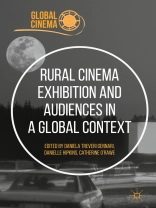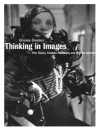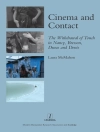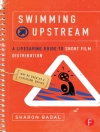Although it has only been in the last decade that the planet’s population balance tipped from a predominantly rural makeup towards an urban one, the field of cinema history has demonstrated a disproportionate skew toward the urban. Within audience studies, however, an increasing number of scholars are turning their attention away from the bright lights of the urban, and towards the less well-lit and infinitely more variegated history of rural cinema-going.
Rural Cinema Exhibition and Audiences in A Global Context is the first volume to consider rural cinema-going from a global perspective. It aims to provide a rich and wide-ranging introduction to this growing field, and to further develop some of its key questions. It brings together eighteen international scholars or teams, all representatives of a dynamic, new field. Moving beyond a Western focus is essential for thinking through questions of rural exhibition, distribution and cinema experience, since over the relatively short history of cinema it is the rural that has dominated cinema-goers’ lives in much of the developing world. To this end, the volume also innovates by bringing discussions of North American and European ruralities into dialogue with contributions on Kenya, Brazil, China, Thailand, South Africa and Australia.
Innehållsförteckning
1. Introduction: Rural Cinema Exhibition and Audiences in a Global Context—Not Just a Slower Transition to Modernity.- Part I Space, Place and Cinema-Going Experiences.- 2. The Use of Geographical Categories in Cinema Studies: An Ontological Examination.- 3. Kanda’s Grounds and the Ritual Experience of Rural Cinema in Narok.- 4. The Business of ‘Wholesome Entertainment’: The Mascioli Film Circuit of Northeastern Ontario.- Part II Early Cinema, Itinerant Showmen and the Lure of Modernity.- 5. Spaces In-Between: The Railway and Early Cinema in Rural, Western Canada.- 6. Rurban Outfitters: Cinema and Rural Cultural Development in New Hampshire’s North Country, 1896–1917.- Part III Oral Histories and the Social Experience of Rural Cinema-Going.- 7. Oral Memories of Cinema-Going in Rural Italy of the 1950s.- 8. Belgian Film Culture Beyond the Big City: Cinema-Going in the Provincial and Rural Periphery of Antwerp.- 9. The Social Experience of Going to the Movies in the 1930s–1960s in a Small Texas Border Town: Moviegoing Habits and Memories of Films in Laredo, Texas.- 10. The Social Geography of ‘Going Out’: Teenagers and Community Cinema in Rural Australia.- Part IV Shaping Cinema Audiences for Educational and Ideological Purposes.- 11. Projecting Modernity: Sol Plaatje’s Touring Cinema Exhibition in 1920s South Africa.- 12. Controlling Rural Cinemagoing by Appropriating a Film Format: The Catholic Adventure of ’Pathé-Rural’ in Interwar France.- 13. UNESCO, Mobile Cinema, and Rural Audiences: Exhibition Histories and Instrumental Ideologies of the 1940s.- 14. Reconsidering Post-Revolutionary Cultural Change: Rural Film Projection Teams in Shaanxi Province, 1949–1956.- 15. Silence under the Linden Tree: Rural Cinema-Going in Czechoslovakia in the 1950s and 1960s.- Part V Film Programming Strategies, Exhibition Practices and Reception.- 16. Language and Cultural Nearness: Film Programming Strategies and Audience Preferences in Big Cities and Small Towns in the Netherlands 1934–1936.- 17. Post-war Thai Cinema: Audiences and Film Style in a Divided Nation.- 18. Youth, Leisure, and Modernity in the film
One Summer of Happiness (1951): Exploring the Space of Rural Film Exhibition in Swedish Post-war Cinema.- 19.
Cine Centímetro: Memories and Cinemagoing Practices in an MGM Replica Cinema in the Rio de Janeiro Countryside.
Om författaren
Daniela Treveri Gennari is Reader in Film Studies at Oxford Brookes University, UK. She is author of Post-War Italian Cinema: American Intervention, Vatican Interests, and Principal Investigator of the AHRC-funded European Cinema Audiences: Entangled Histories, Shared Memories project.
Danielle Hipkins is Associate Professor in Italian Studies and Film at the University of Exeter, UK. She is author of Italy’s Other Women: Gender and Prostitution in Postwar Italian Cinema, 1940-1965, and co-editor of Prostitution and Sex Work in Global Cinema: New Takes on Fallen Women.
Catherine O’Rawe is Reader in Modern Italian Culture at the University of Bristol, UK. She is author of Stars and Masculinities in Contemporary Italian Cinema, and co-editor of The Femme Fatale: Images, Histories, Contexts.












